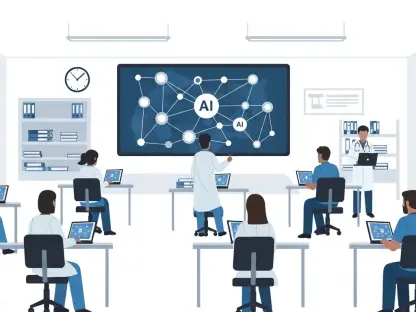In recent years, artificial intelligence (AI) has emerged as a revolutionary technology in the field of personalized medicine. AI’s ability to handle large amounts of data and identify patterns has facilitated the shift towards more individualized healthcare solutions. Personalized medicine, tailored to the unique genetic makeup of each patient, is becoming a reality due in large part to advancements in AI.
Context and Background
Personalized medicine has been a growing field since the early 2000s, with the completion of the Human Genome Project in 2003 serving as a major milestone. However, the integration of AI into this field has only become prominent in the last decade. Companies like IBM, founded in 1911, and newer AI-focused startups have led the charge in integrating AI with healthcare databases to provide more precise treatment options.
Early Adoption and Development
The initial adoption of AI in personalized medicine involved rudimentary data analysis from clinical trials. These methods, while effective, lacked the sophisticated algorithms that characterize modern AI. By 2015, with the advent of powerful machine learning techniques, AI began to process complex datasets more efficiently, uncovering insights that were previously hidden.
Research Methodology
The use of AI in personalized medicine relies heavily on large-scale data collection and advanced analytical techniques. Researchers gather genetic information, electronic health records, and patient histories to feed into AI systems. Machine learning algorithms then analyze this data to identify patterns and correlations that can predict how different patients will respond to various treatments.
Data Collection
In 2020, a significant study by Stanford University utilized AI to analyze genetic data from over 10,000 patients. This study highlighted the capability of AI models to predict disease risk and treatment outcomes with high accuracy. Similarly, the Personalized Medicine Coalition, established in 2004, has been instrumental in standardizing data collection practices across the industry.
Algorithm Development
Sophisticated algorithms are the backbone of AI in personalized medicine. Deep learning, a subset of machine learning, has shown particular promise. These algorithms can identify subtle patterns that might be missed by traditional statistical methods. Researchers continually refine these algorithms to improve their predictive accuracy and ensure they remain up-to-date with the latest medical knowledge.
Findings and Implications
The integration of AI in personalized medicine has yielded several promising results. AI’s predictive capabilities have led to more precise treatments and improved patient outcomes. For example, AI algorithms can now predict which cancer treatments will be most effective for individual patients, significantly increasing the chances of successful treatment.
Key Findings
A 2019 study at the Mayo Clinic demonstrated the potential of AI in predicting cardiovascular disease risk. By analyzing patient data, including genetic information and lifestyle factors, AI models could accurately forecast the likelihood of heart disease, enabling early intervention and prevention strategies.
Broader Implications
The implications of these findings are profound. Personalized medicine supported by AI can lead to more effective treatments, reduced healthcare costs, and improved quality of life for patients. As AI technology continues to advance, its role in personalized medicine is expected to expand, offering even more precise and tailored healthcare solutions.
Conclusion
By 2023, the use of AI in personalized medicine had become an integral part of healthcare. The ability of AI to analyze vast amounts of data and provide insights into patient-specific treatments had revolutionized the field. Ongoing research and development ensured that AI would continue to play a crucial role in advancing personalized medicine, providing hope for more effective and individualized healthcare in the future.









